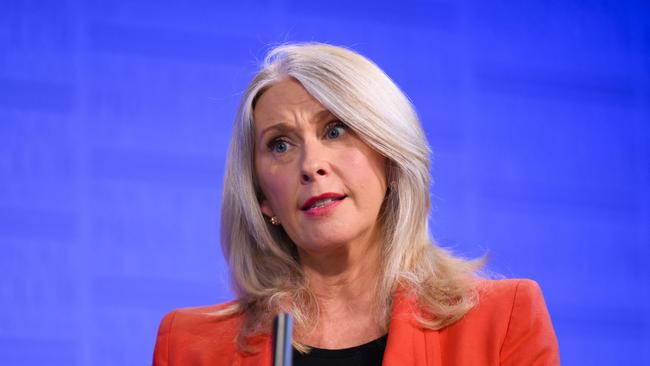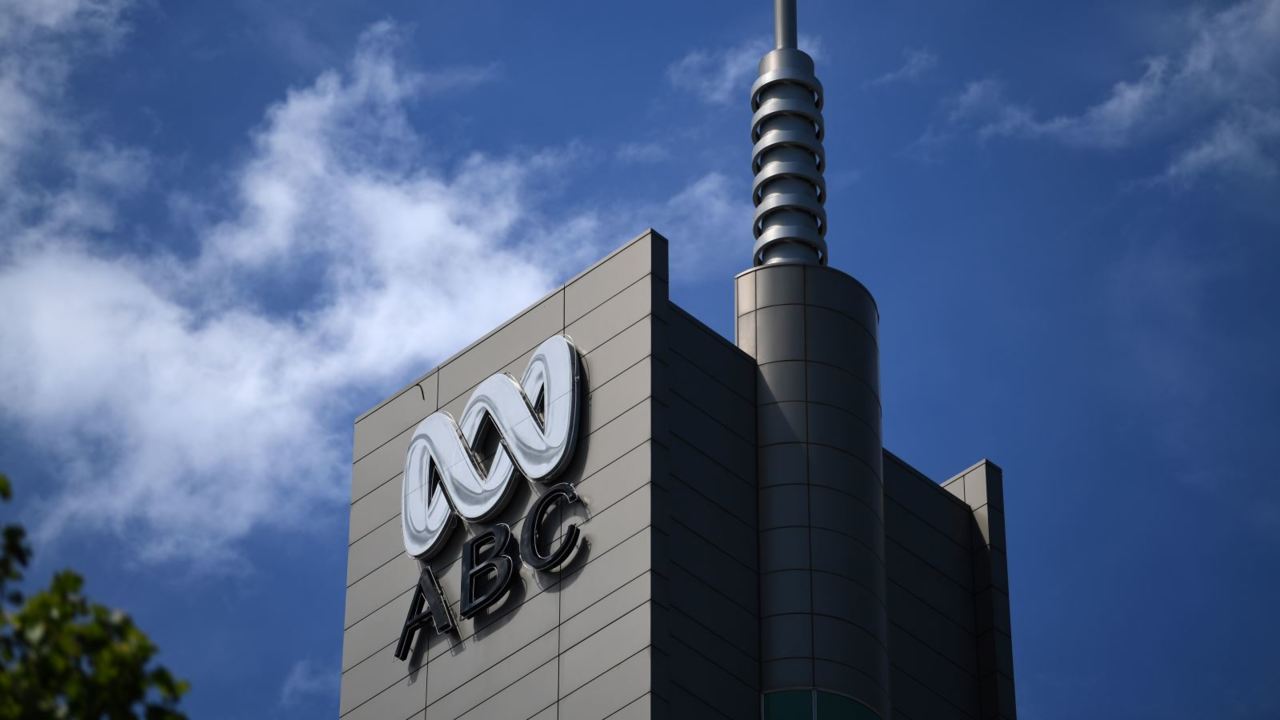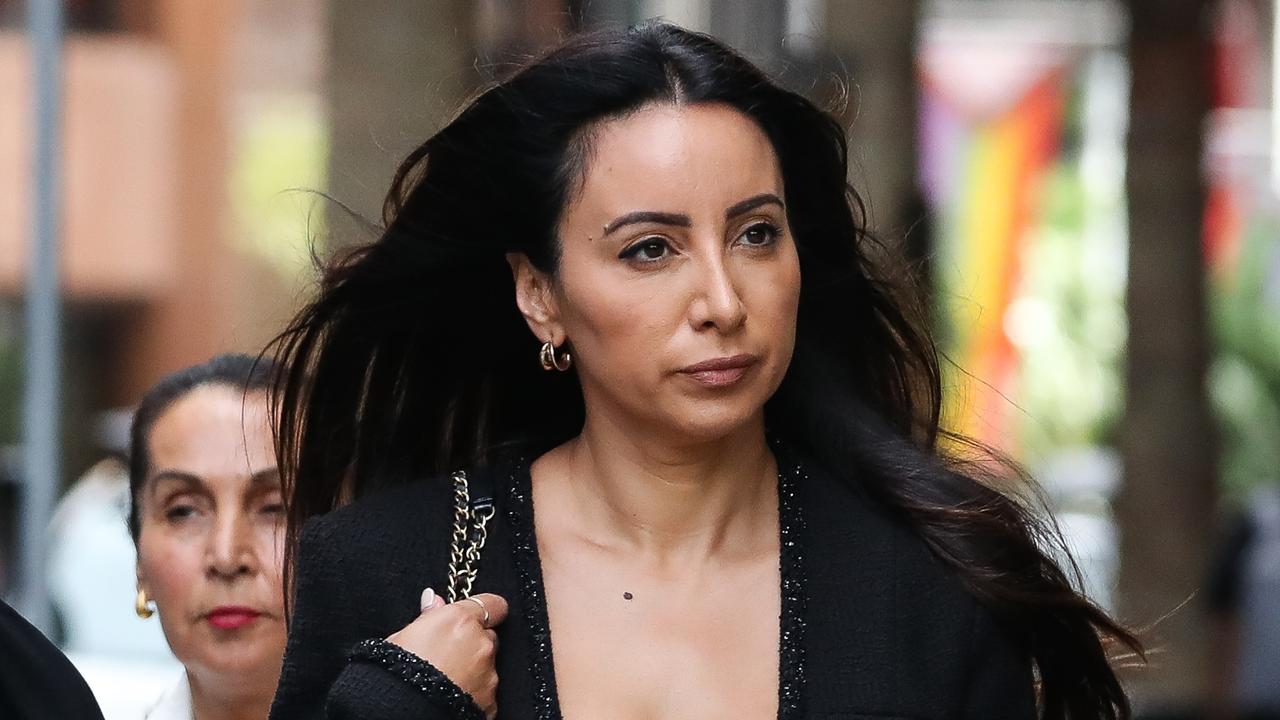
An appalling breach of trust revealing the identities of three domestic violence and sexual assault victims has thrown a spotlight on to Tracey Spicer’s #MeToo campaigning.
The former newsreader’s efforts have certainly generated attention for the issue of sexual assault and harassment, and created a profile for Spicer, but we are left to wonder about the extent of the benefits and damage done along the way.
READ MORE: MeToo storm blows back on Ita’s ABC | Spicer should own error over domestic violence names: Rosie Batty | Spicer ‘sorry’ after rape victims exposed by ABC bungle
Perhaps her campaign’s major fault has been it always looked more about creating a storm than conducting journalism. At the least, these two aspirations have sometimes become confused and worked at cross purposes.
Spicer became the face of the #MeToo movement in Australia in 2017, not long after the movement grabbed global headlines in the wake of the Harvey Weinstein revelations in the US.
She took to Twitter (interestingly enough without using the #MeToo hashtag) declaring: “Currently, I am investigating two long-term offenders in our media industry. Please, contact me privately to tell your stories.”
Spicer says she was overwhelmed with responses making allegations about men in the media and entertainment industry. There was much media attention, with Spicer referring to a “tsunami” of complaints.
“Spicer vows to out 40 sleazebags in media industry,” screamed a Daily Telegraph headline. “Tracey Spicer knows the Harvey Weinsteins of Australia. And she plans to name and shame them,” said MamaMia.
It has all come to little: media reports exposed former television identity Don Burke, leading to an apologetic interview but no charges; actor John Jarrett was charged over historic sexual assault allegations but was acquitted with the court ruling the episode was consensual; and another actor, Craig McLachlan, is still before the courts on indecent assault claims.
The former federal Labor leader, and now One Nation MP in NSW, Mark Latham, has been on Spicer’s case, accusing her of smearing all men in the industry.

He has tweeted: “Day 637 of Dick Tracey’s ‘Name and Shame 40’ sexual predators campaign, with ‘450 victims’ and ‘dozens of allegations of rape’.
“And what did it produce? John Jarratt not guilty. Some smeared reputations, nothing else. #MeToo joke of the century.”
He has a point. As he told the NSW parliament in October: “People cannot run around saying there are 40 sexual fiends in the media and then never produce any evidence. That has tarnished the reputation of every person in those workplaces who, in the majority of instances, would be doing the right thing.”
Sexual assaults and harassment are reprehensible, of course, and their perpetrators odious. But allegations are best directed to law enforcement or workplace authorities.
We understand this might not happen, for all kinds of reasons, and journalists have a legitimate role investigating and reporting such cases. Weinstein and others, we learn, were protected by many people for a long time.
But journalists need to be especially careful in reporting these issues. Quite apart from unfairly smearing reputations, their prime consideration must be protecting the identity of victims. Obviously, this is fundamental.
Yet, in the very week she was formally awarded the Sydney Peace Prize for her #MeToo work, along with US #MeToo founder Tarana Burke, Spicer had to explain her role in a terrible breach of trust. The identities of three victims of domestic violence and sexual assault had their identities revealed without their consent in a preview version of an ABC documentary “Silent no more”.
Spicer had allowed herself to be filmed scrolling through the confidential complaints.
“I am absolutely devastated about what happened with the ABC and the production company and the early version of the documentary that was put on this subscriber-only portal that was viewed by certain media outlets,” she told the National Press Club last week. “I am absolutely horrified that the proper policies and procedures that were in place were not good enough to properly protect survivors and I say to every single survivor I am so deeply sorry from the bottom of my heart that that happened.” There is an element of buck-passing here. Domestic violence campaigner Rosie Batty has called on Spicer to accept the “buck stops” with her because she was the “custodian” of the victims’ information.
At the press club Spicer was questioned by journalists Gina Rushton (who has exposed problems in Australia’s #MeToo movement for Buzzfeed) and The Australian’s Alice Workman about the breaches of privacy and potentially unethical behaviour.
Spicer referred repeatedly to the production company procedures. “I trusted them with people’s privacy and with the confidentiality of the documentary. Now whether that was naive of me: possibly yes. They told me about the policies and procedures that would be in place and I trusted that that would be in place,” she said.
This was the crucial point Rushton and Workman understood but Spicer never properly answered. Unless she is holding some crucial information back, as a journalist she had no permission to share those names and their information with anyone — not cameramen, not producers, not fellow journalists.
If the information had been properly protected, there could have been no breach. And what is done cannot be undone.



